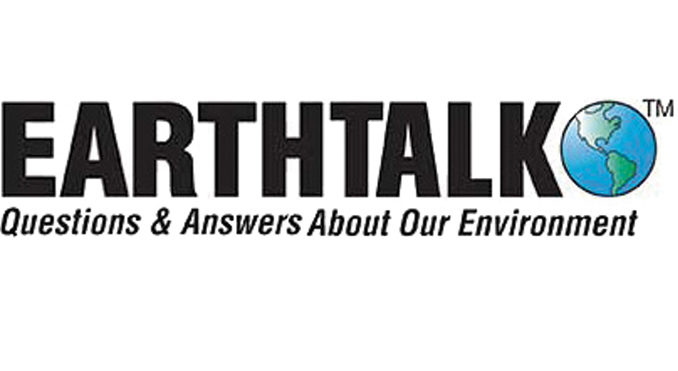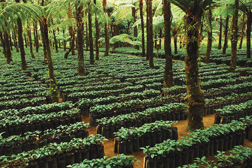
Dear EarthTalk: There are so many eco-labels out there these days. How can I tell which ones are valid and not just “greenwashing”? ~ Penny Rasmussen, Calumet, MN
With countless products now available labelled as “eco-friendly,” “safe for the environment” or “organic,” it’s hard to know which ones are actually good for the planet. Many are legitimate, but lots of others feature deceptive or unsubstantiated claims. And even the legitimate labels vary a lot in meaning. Truly valid ecolabels are awarded by independent third parties, not the companies who sell products on which they’re featured. These days many companies are placing misleading claims and nonsense labels on their products to create the illusion of environmental friendliness, a practice known as “greenwashing.”
Third parties, on the other hand, require that products meet certain specific criteria before granting the right to display their eco-label. When we know they are trustworthy, eco-labels can serve as a potent means for altering consumer behavior in a way that benefits the environment.
There are some common eco-labels that we can vouch for given decades of trustworthy certifications. The U.S. government’s ENERGY STAR label identifies products, devices and appliances that meet stringent energy efficiency standards. If you buy an ENERGY STAR certified dishwasher, you know you’re saving energy (and money) versus other models that don’t qualify.

Another trustworthy eco-label seen often on coffee, fruits, tea, paper or furniture is “Rainforest Alliance Certified,” a designation for foods and building materials sustainably sourced from tropical rainforests. The non-profit Rainforest Alliance runs this program in part by vetting producers throughout the tropics.
If you like to know the products you buy are sourced sustainably by workers who were not exploited and were paid a living wage, look for the “Fair Trade Certified” label. Almost a million workers across 45 different countries currently benefit from the sourcing or production of Fair Trade items.
Meanwhile, the “Certified Organic” label signifies that a food contains at least 95 percent organic ingredients. Plant-based foods bearing this label have not been treated with petroleum-based fertilizers or conventional pesticides, and have not been genetically modified. You can rest assured that any “Certified Organic” animal products you consume have not been treated with antibiotics or growth hormones and were fed organic feed and allowed access to the outdoors. And any products labeled “Made with Organic Ingredients” contain at least 70 percent organic ingredients.
Some other trustworthy labels include: LEED, GreenSeal, FSC-Certified, Salmon-Safe, WaterSense and Non-GMO Project Verified. If the label in question isn’t mentioned above, it might be worth investigating. Sharing what you know about eco-labels, whether by word-of-mouth or via social networks, is a fantastic way of helping the environment. As awareness grows, those you have enlightened will be able to exert an ever-greater positive force upon the market.
CONTACTS: ENERGY STAR, energystar.gov;
Rainforest Alliance, rainforest-alliance.org;
Fair Trade Certified, fairtradecertified.org;
USDA Certified Organic, usda.gov/topics/organic;
LEED, usgbc.org/leed; Green Seal, greenseal.org;
Forest Stewardship Council, fsc.org;
Salmon-Safe, salmonsafe.org;
WaterSense, epa.gov/watersense;
Non-GMO Project Verified, nongmoproject.org.
___________________________________
Dear EarthTalk: What is the Degrowth movement all about and how can I get involved? ~P. Warren, Baltimore, MD
Degrowth is an aspirational term describing a way of life where economic expansion is deprioritized, resulting in stronger social bonds between people and within communities, greater economic equality and far less environmental degradation. Proponents decry the current economic/social paradigm of “faster, higher, further” as harmful to nature, given its relentless race to extract and monetize natural resources. They also abhor its competitiveness, stress and exclusion at the expense of the care, solidarity and cooperation necessary to help ourselves out of our humanitarian and ecological crises.
The term “degrowth” first came into common usage among proponents following the first international conference devoted to the topic in Paris in 2008. It has since entered the wider social lexicon through the media and academic writing—and as a battle cry for many environmental advocates working to ratchet down our carbon emissions to combat climate change.
According to the web portal Degrowth.info, a society refocused on degrowth would prioritize achieving “the good life for all” by fostering a culture of “deceleration, time welfare and conviviality.” Meanwhile, developed countries would reduce production and consumption, partly to reduce their impact on the planet but also so as not to lead less-developed countries down the wrong road through bad example.

Degrowth is also predicated on extending democratic decision-making and political participation to all corners of society, acknowledging the ability of local populations to make their own decisions about how to retain self-sufficiency and sustainability in the face of socially and ecologically turbulent times. Also, degrowth advocates say we should be relying on cooperation, planning and a conservation ethic to solve our environmental problems instead of waiting for technological fixes that may or may not even work.
But just because we would be sacrificing some of our consumerism doesn’t mean degrowth would lead to a lesser quality of life. In fact, proponents argue the opposite, envisioning happier lives where we would derive more satisfaction from healthier time-tested pursuits like art, music, walks outside and time with friends and family than from sitting inside by a screen plotting another amazon.com purchase.
Achieving degrowth—and attaining a “steady-state” economy that can function without getting bigger—is of course easier said than done. Rich nations would have to pare down their energy and resource demands significantly and let poorer nations increase their consumption so their citizens get the chance to live healthy, safe lives with access to the conveniences (electricity, sanitation…) modern life has to offer.
If you want to learn more about degrowth, Degrowth.info is a great resource and can point you toward local gatherings of like-minded activists. Another way to get involved is by attending the Picnic 4 Degrowth that takes place in parks all over the world on the first weekend of June every year. And if you really want to go deep, get yourself to Europe for one of the non-profit Research and Degrowth’s annual movement-wide gatherings (May 29-June 1 in Vienna, Austria and/or September 1-5 in Manchester, England).
CONTACTS: Degrowth info; degrowth.info;
Picnic 4 Degrowth, picnic4degrowth.wordpress.com;
Research & Degrowth, degrowth.org.
___________________________________
EarthTalk® is produced by Roddy Scheer & Doug Moss for the 501(c)3 nonprofit EarthTalk. See more at https://emagazine.com. To donate, visit https://earthtalk.org. Send questions to: question@earthtalk.org.

